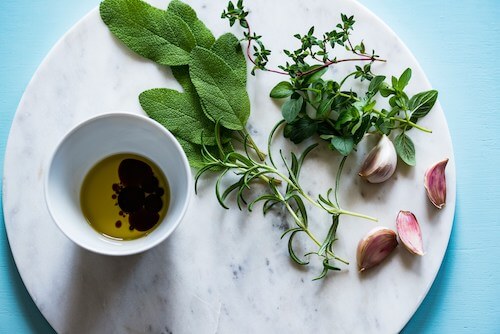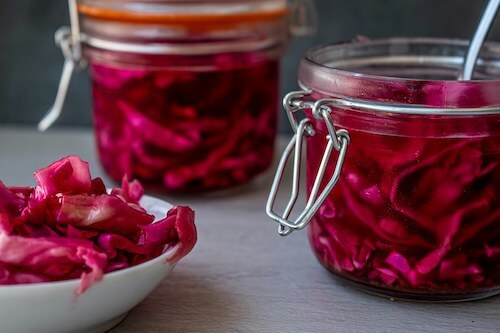Nature’s Pharmacy: Natural Antibiotics Found in the Kitchen

© Katherine Hanlon
In the age of modern medicine, antibiotics have revolutionized healthcare by saving countless lives. However, their overuse has led to the rise of antibiotic-resistant bacteria, posing a significant threat to public health. Amidst this challenge, nature offers a treasure trove of solutions, including potent antimicrobial compounds found in everyday kitchen ingredients. Let’s delve into the world of natural antibiotics and explore how everyday ingredients can combat infections effectively.
No. 1: Garlic
Garlic (Allium sativum) is a proven natural remedy for respiratory tract infections. The active component of garlic, called allicin, successfully targets many strains of bacteria. Garlic supplementation is effective for prevention of acute respiratory infections, reduction of the common cold duration, and improvement of the immune system function. Moreover, it can inhibit the growth of fungi and antibiotic-resistant strains like methicillin-resistant Staphylococcus aureus (MRSA).
No. 2: Onion
Onion (Allium cepa L.) does not only kill bacteria, but also clears the respiratory tract thanks to its volatile oils. Studies have proven the effectiveness of onion extract against the main causal bacteria of adult periodontitis, an infection of the gums.
No. 3: Fermented foods
Fermented sauerkraut, cucumbers, or kimchi are food products rich in beneficial lactic acid bacteria which restore the balance of gut microbiota by fighting against bacteria (like Helicobacter pylori, Staphylococcus aureus, Escherichia coli, or Salmonella) and fungi (including Aspergillus fumigates, Aspergillus sp., and Candida albicans) more effectively than the anti-fungal drug clotrimazole.
No. 4: Honey
Already in ancient times honey was considered an effective remedy for many diseases. Manuka honey, obtained from the nectar of the manuka shrub, has antibacterial properties against Clostridium difficile, Helicobacter pylori, Escherichia coli, Salmonella, Shigella, Staphylococcus aureus, Staphylococcus epidermidis, and Klebsiella oxytoca which can cause gut, respiratory and skin diseases. Several studies have demonstrated that Manuka honey can help to treat and prevent gingivitis and periodontal disease, urinary tract infection, and dermatitis.
No. 5: Coconut oil
Coconut oil can help improve gut health by destroying harmful bacteria like Clostridium difficile, the leading cause of hospital-acquired antibiotic-associated diarrhea worldwide. Another study has found that the capric acid and lauric acid in coconut oil are active in killing Candida albicans and may therefore be useful for treatment of yeast infections.
No. 6: Oregano oil
Oregano oil has been shown to inhibit the growth of Escherichia coli, Pseudomonas aeruginosa, Salmonella that cause food poisoning. Oregano oil can be as effective against Klebsiella pneumoniae (causes destructive changes to the lungs) and Candida albicans. One study found that oregano oil is also a potential anti-parasitic remedy against enteric parasites like Blastocystis hominis, Entamoeba hartmanni and Endolimax nana.

No. 7: Thyme Oil
Thyme (Thymus vulgaris) oil is an excellent antimicrobial. Studies evaluated its effect against bacteria found in milk, such as Salmonella. The results indicate that using thyme oil as an antimicrobial preservative for food could be a good option for protecting our bodies from that bacterium. Wouldn’t this be a better choice than the usual chemical approach? Moreover, T. vulgaris exhibited strong effectivity against bacteria isolated from patients with infections of the oral cavity, the respiratory and genitourinary tracts, and infections acquired from a hospital environment.
From the pungent power of garlic to the sweet elixir of honey, nature has bestowed upon us a cornucopia of natural antibiotics, each brimming with therapeutic potential. Several kitchen staples harbor the power to fortify our immune defences, fend off infections, and nurture overall well-being.



